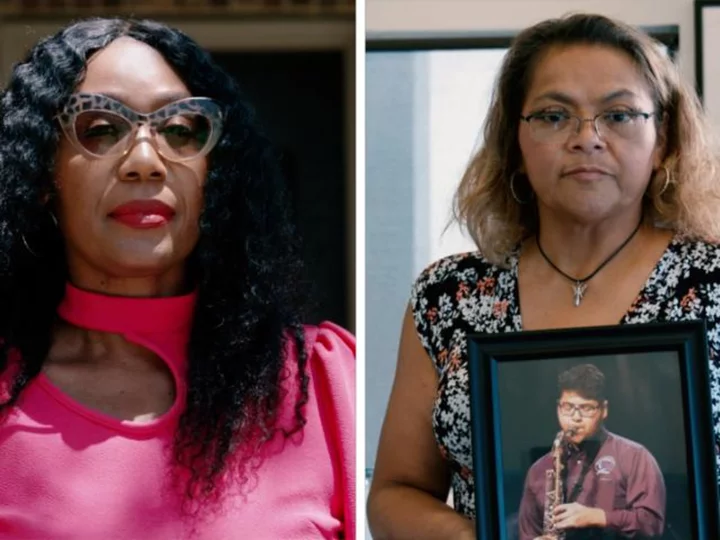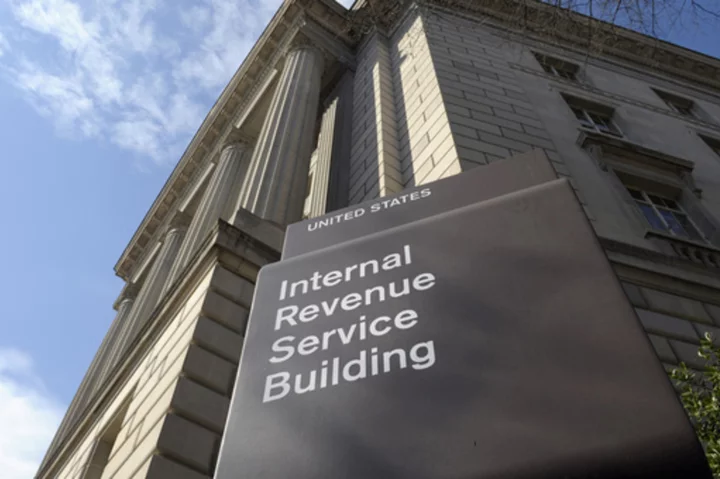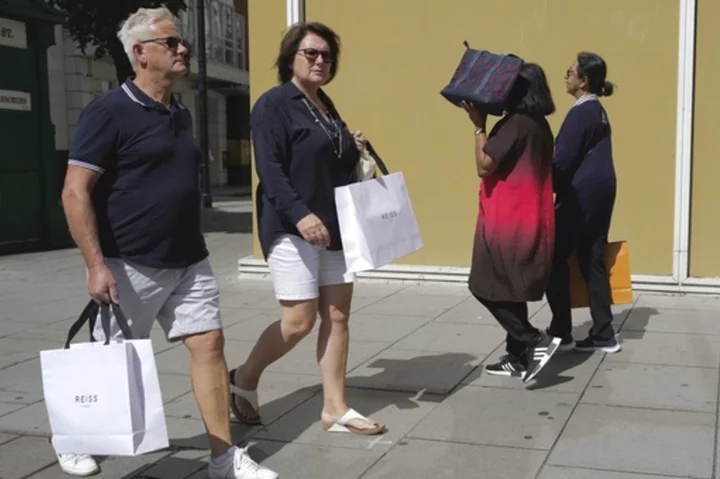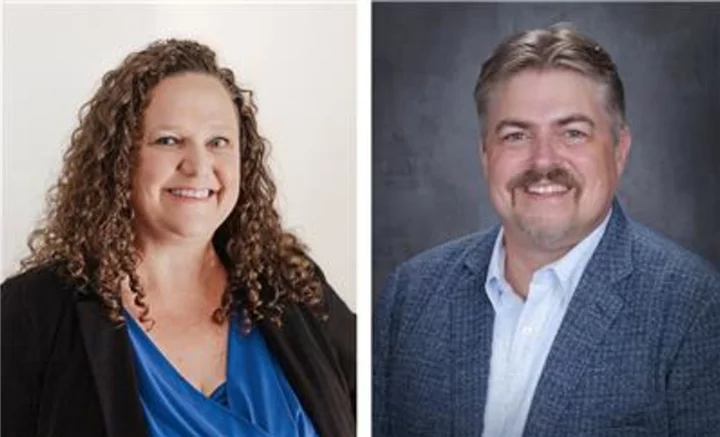Gabriel Infante, 24, was dazed and sweating in the unforgiving sun. The heat index was over 100 degrees on the fifth day of his new job installing fiber optic cables in the San Antonio, Texas, area.
Late that afternoon, he lunged at another coworker in a fit of delirium, alleging that his coworkers "were going to kill him," according to his mother's recollection of events told to her by Gabriel's friend and coworker, Joshua Espinoza. Infante then fell and hit his head. The site supervisor demanded the police be called and that Infante be drug tested -- even after EMTs arrived and said he was showing signs of a heat stroke, according to a lawsuit his mother filed in Bexar County, Texas, in June.
But Infante wasn't overdosing. He was dying of heat exhaustion, and his body was shutting down. Infante later died in the hospital in the early morning hours of June 24, 2022.
"He went to work Monday. By Friday, he had his accident, and my son was gone Saturday morning," Velma Infante, his mother, told CNN. "Basically, they told me his organs were fried."
Gabriel's body temperature was nearly 110 degrees by the time he reached the emergency room, according to the Bexar County medical examiner's initial autopsy report that was conducted just hours after Infante passed.
"Any worker, in any type of job that you do, should be able to come home in the evening to their families," his mother said.
The employer, B Comm Constructions, declined to comment to CNN.
From 2011 to 2021, there were at least 436 work-related deaths in the US due to environmental heat exposure. More deaths are expected as record-shattering heat becomes the new norm.
CNN spoke to two women who lost loved ones who died while working outdoors in the extreme heat.
"They cannot work under the same working conditions that they were working under 20 years ago. The weather is not the same anymore," Carla Gates, whose husband Eugene Gates, 66, passed away this June while delivering mail in the Dallas area, said in an interview with CNN at her home in Texas. "We have to save these workers' lives."
It was a 'death trap'
Gates' late husband, Eugene, had worked for the US Postal Service for 36 years. In June, he left home for his usual delivery route in the Lakewood, Texas, area. He had just been getting back to work after taking a week off, which was partially motivated by a desire to have some time to relax before Texas's triple-digit-heat set in, according to Carla.
"He had a beautiful smile," Gates said. "Once you got to know him...He would talk your ear off like you've known him for years."The two would typically text each other throughout the day when they could, but that day, June 20, Carla didn't hear from her husband.
It was 4:30 in the afternoon when Carla received a call from Eugene's supervisor. He had passed out and she needed to get to the hospital as soon as possible.
"It wasn't confusing. I knew it had to have been the heat," Carla said. According to what Eugene's then-supervisor told Carla, her husband collapsed in a neighbor's front yard while delivering mail. The neighbor tried to administer CPR before paramedics arrived to rush him to the hospital, according to Carla's recollection of events relayed to her.
And then the hospital's chaplain called.
"I just fell on the floor. I just fell on the floor screaming and hollering," Carla recalled when she arrived at her husband's bedside in the hospital. "The last time I saw my husband, he had a tube down his throat. That was the last time I saw him."
Eugene's final autopsy report is still pending, meaning the official cause of death is unconfirmed, but Carla told CNN that her husband had "no health problems whatsoever."
The Dallas County Medical Examiner told CNN that Gates' autopsy could take up to 90 days to complete -- standard for the examiner's office, the office's clerk added. Weather records show that on the day Gates died this past June, temperatures in the Dallas area felt like 119 degrees.
In a photo shared with CNN by Kimetra Lewis, president of the National Association of Letter Carriers branch that represented Gates, and taken two days before Eugene's death, a thermometer showed the temperature inside another USPS truck in the Dallas area was almost 140 degrees.
Carla said she felt like it was a "death trap" for her husband to work outside in those conditions.
The US Postal Service told CNN it was "deeply saddened" by Eugene's death and that safety is its "top priority." The company said it provides "mandatory heat-related and other safety training and instruction to all employees and assures they have the resources needed to do their jobs safely."
'His job was done'
Infante is now suing her son's former employer, B Comm Constructions, alleging "gross negligence" in his death. The lawsuit claims that Infante and his coworkers were not given proper protection from the heat, "nor were there any policies or systems in place to safeguard from the known hazards associated with extreme heat conditions."
The company did not respond to CNN's inquiry about the lawsuit.
Heat is often a silent killer. People facing hot temperatures are advised to stay in the shade as much as possible and drink plenty of fluids, but as heat exhaustion takes ahold of its victim, it can often be extremely difficult if not impossible for the victim to help themselves. Experts stress that it can be vital for another person to be there to help a potential victim identify early signs of heat exhaustion.
Recently, Velma found herself stopped in traffic with no working air conditioning in her car. It was 103 degrees out and she could barely stand the heat.
"My son's body temperature was 110. What was going through his mind when he was going through this?" Infante wondered.
Gabriel was 24 years old when he died on the 24th of June. When his family picked up his belongings from the medical examiner, Velma said there was 24 dollars left in his wallet.
His headstone now sits perched at the cemetery next to the grave of his father. In a photo taken at his father's funeral, Gabriel could be seen standing next to his father's gravestone.
"Mom, look at where Gabriel is standing," Velma recalled her daughter saying of the photo.
He was standing in the very spot where he would later be laid to rest. Months after his passing, Velma and her daughters scattered Gabriel's ashes on his 25th birthday.
"My daughter at the end, she said, 'Mom, I don't think Gabriel was meant to be here for a long time. His job was done, and God is taking him home,'" Velma recalled. "So that gives me a little comfort."
Fighting for protections
In Texas, cities like Austin and Dallas have, for years, implemented local laws that mandate protections such as water breaks for workers when the heat gets above 100 degrees. But state Republicans passed a bill this June that restricts local authorities from creating any laws or policies that are "stricter" than state laws. The new bill is expected to go into effect this September.
In a statement to CNN, Texas Governor Greg Abbott's office said that "nothing in Texas or federal law prohibits employers from allowing workers to take water breaks in hot weather," and that the new bill "maintains" the federal standards currently in place.
But, as CNN has previously reported, there are virtually no federal standards currently in place by the Occupational Safety and Health Administration (OSHA) when it comes to protecting workers in extreme heat. In September 2021, the Biden administration announced it would review those federal standards, but any changes could take years to go into effect.
Velma Infante worries that other state governors might follow Abbott's example and implement similar laws that could potentially roll back local worker protections.
"The governor should come out one day and be out here in the heat with all these workers to see what he feels," Infante said, adding that she disagrees with the governor's bill.
Carla Gates agreed that more mandated protections are needed.
"[There] needs to be a bill passed permanently that [says it's] against the law to have workers in this type of weather," she said. "People need to know that it's real. The heat can cause death of your loved ones if we're not careful."









